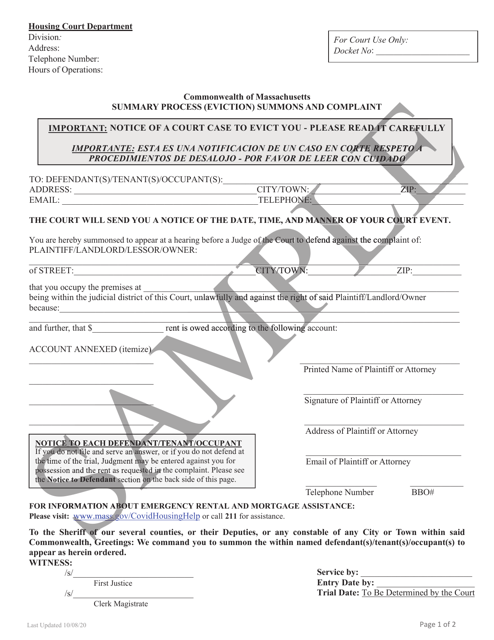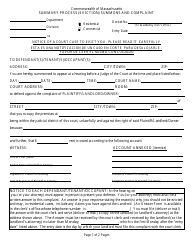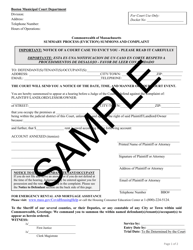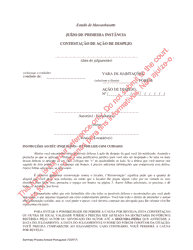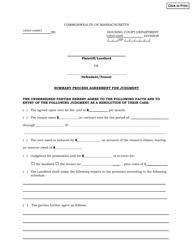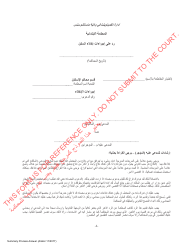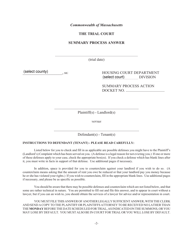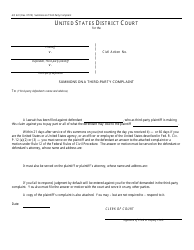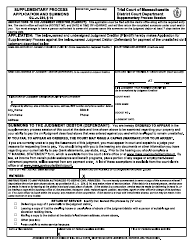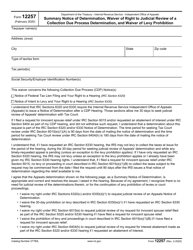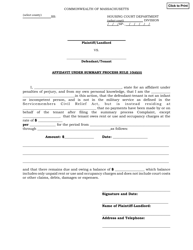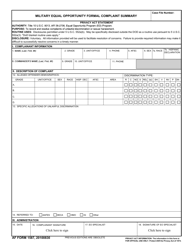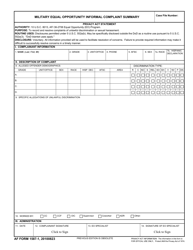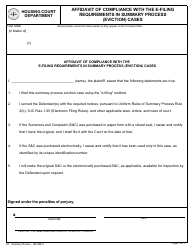Summary Process (Eviction) Summons and Complaint - Massachusetts
Summary Process (Eviction) Summons and Complaint is a legal document that was released by the Massachusetts Housing Court - a government authority operating within Massachusetts.
FAQ
Q: What is an eviction summons and complaint?
A: An eviction summons and complaint is a legal document that notifies a tenant that their landlord is seeking to evict them from their rental property.
Q: What is the purpose of an eviction summons and complaint?
A: The purpose of an eviction summons and complaint is to initiate the legal process of evicting a tenant and provide them with notice of the eviction proceedings.
Q: Who files an eviction summons and complaint?
A: The landlord or their representative files an eviction summons and complaint in court.
Q: What information is typically included in an eviction summons and complaint?
A: An eviction summons and complaint typically includes the names of the tenant and landlord, the address of the rental property, the reason for eviction, and the date and time of the court hearing.
Q: What should a tenant do when they receive an eviction summons and complaint?
A: When a tenant receives an eviction summons and complaint, they should read it carefully and take appropriate legal action, such as seeking legal advice or responding to the complaint.
Q: What happens if a tenant does not respond to an eviction summons and complaint?
A: If a tenant does not respond to an eviction summons and complaint, the court may enter a default judgment in favor of the landlord, resulting in the tenant being evicted.
Q: Can a tenant dispute an eviction summons and complaint?
A: Yes, a tenant can dispute an eviction summons and complaint by filing a written response in court and presenting their case during the eviction hearing.
Q: What are the possible outcomes of an eviction hearing?
A: The possible outcomes of an eviction hearing include the tenant being allowed to stay in the rental property, the tenant being ordered to leave the property, or the court granting a payment plan or other resolution to resolve the dispute.
Q: Can a tenant be evicted immediately after receiving an eviction summons and complaint?
A: No, a tenant cannot be immediately evicted after receiving an eviction summons and complaint. The eviction process takes time and requires a hearing in court.
Q: Is it recommended for a tenant to seek legal advice when dealing with an eviction summons and complaint?
A: Yes, it is recommended for a tenant to seek legal advice when dealing with an eviction summons and complaint to understand their rights and options during the eviction process.
Form Details:
- Released on October 8, 2020;
- The latest edition currently provided by the Massachusetts Housing Court;
- Ready to use and print;
- Easy to customize;
- Compatible with most PDF-viewing applications;
- Fill out the form in our online filing application.
Download a printable version of the form by clicking the link below or browse more documents and templates provided by the Massachusetts Housing Court.
